Eczema Treatment
Get expert Fungal Infection Treatment at Derma Solutions! Say goodbye to itching, redness, and discomfort with advanced dermatology care. Safe, effective, and personalized solutions for healthy skin. Book your appointment today!

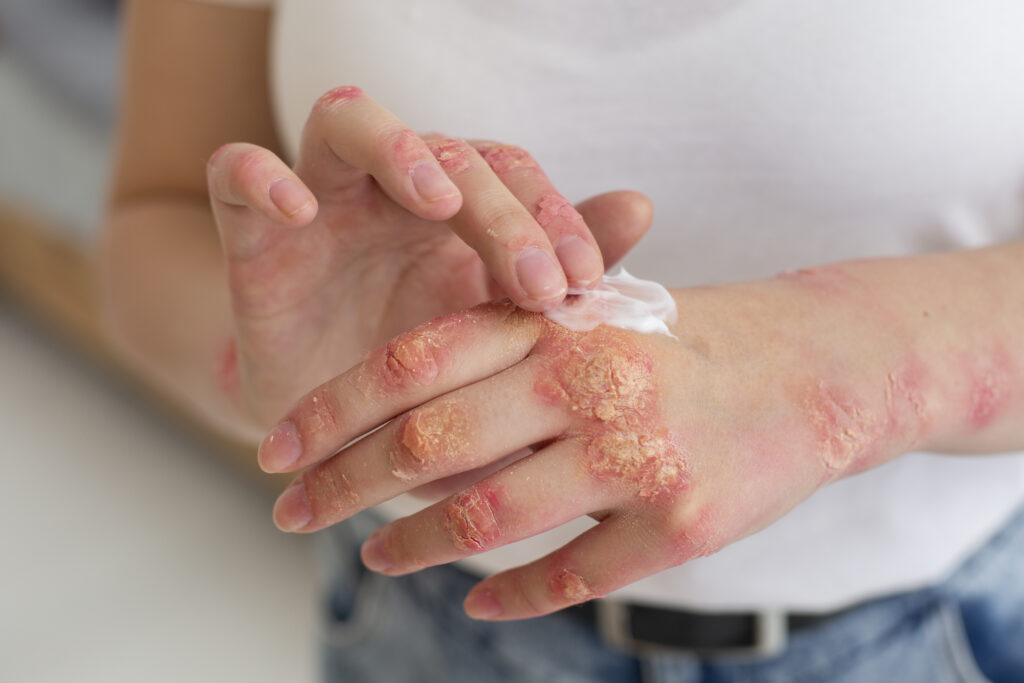
Eczema, also known as atopic dermatitis, is a chronic skin condition that causes inflammation, redness, itching, and irritation. It can affect people of all ages but is most common in children. While eczema is not contagious, it can significantly impact the quality of life for those who suffer from it, often leading to discomfort, disrupted sleep, and self-consciousness. Fortunately, with the right treatment and care, symptoms can be managed effectively.
Types of Eczema
Eczema is a broad term that encompasses several different types of dermatitis. Each type has distinct characteristics:
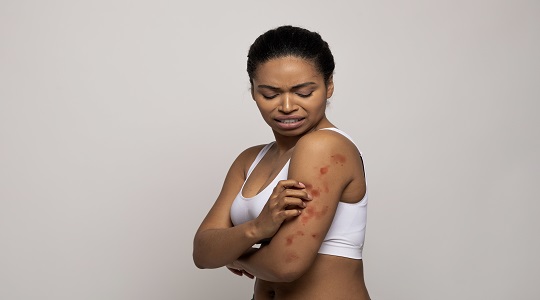
Atopic Dermatitis
- The most common form of eczema.
- Often linked to other allergic conditions like asthma and hay fever.
- Typically begins in childhood and may persist into adulthood.
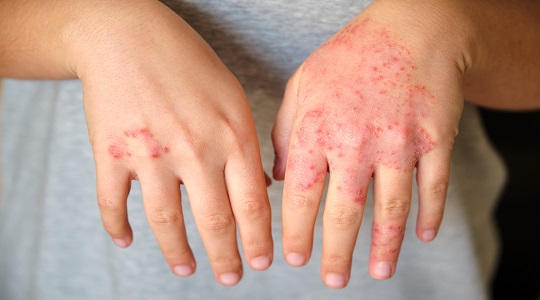
Contact Dermatitis
- Triggered by contact with irritants or allergens.
- Divided into irritant contact dermatitis (caused by chemicals or substances) and allergic contact dermatitis (caused by an allergic reaction).
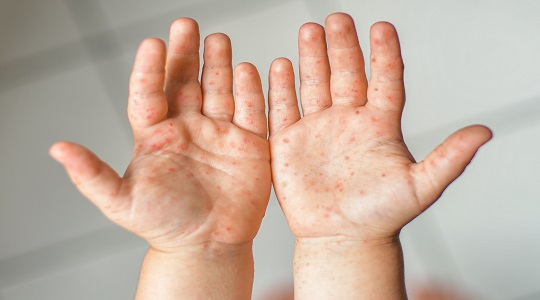
Dyshidrotic Eczema
- Characterized by small, itchy blisters on the hands and feet.
- Often triggered by stress, sweating, or exposure to certain metals.
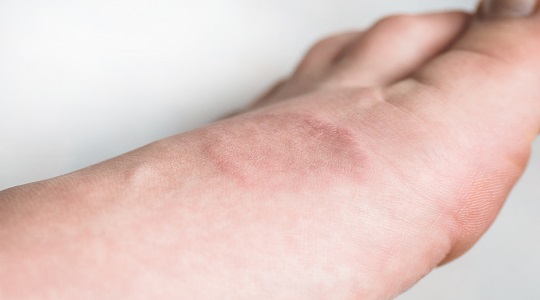
Nummular Eczema
- Appears as circular, coin-shaped spots on the skin.
- Typically caused by dry skin, insect bites, or an allergic reaction.
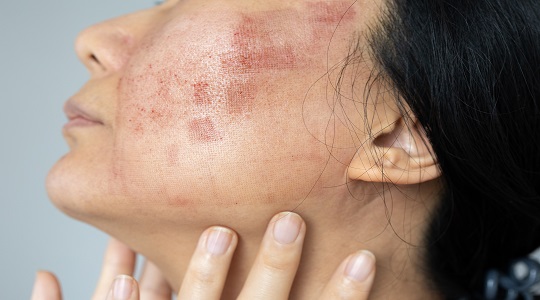
Seborrheic Dermatitis
- Often occurs on oily areas of the body, such as the scalp, face, and chest.
- Can cause dandruff and flaky skin.
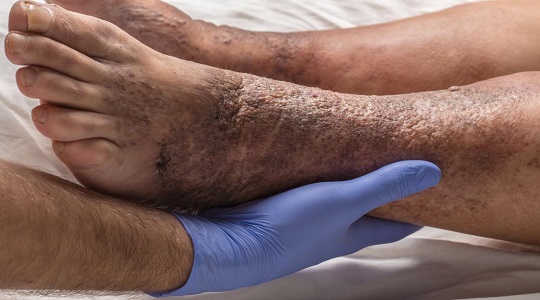
Stasis Dermatitis
- Associated with poor circulation in the lower legs.
- Leads to swelling, redness, and skin discoloration.
Who is at the risk of developing a Eczema?
Eczema can affect anyone, but certain factors may increase the likelihood of developing the condition:

Genetics: A family history of eczema, asthma, or hay fever increases the risk.

Age: Eczema often begins in infancy or early childhood, although it can also develop in adults

Allergies: Individuals with allergies are more prone to eczema.

Environmental Factors: Exposure to allergens, pollutants, and harsh climates can contribute to the development of eczema.

Gender: While eczema affects both males and females, some studies suggest that females may be slightly more prone to certain types.

Occupational Risks: Jobs that require frequent exposure to irritants, such as healthcare workers, hairdressers, and cleaners, may increase the risk.
Symptoms of Eczema
The symptoms of eczema can vary depending on the type and severity of the condition. Common symptoms include:
- Dry, sensitive skin: The skin may feel rough and dehydrated.
- Intense itching: This is often the most bothersome symptom and can lead to scratching, which worsens the condition.
- Red, inflamed skin: The affected areas may appear swollen and irritated.
- Rashes: These may develop on the face, hands, feet, or behind the knees and elbows.
- Thickened or scaly skin: Chronic eczema can cause the skin to become thick and leathery.
- Blisters or oozing: In severe cases, blisters may form and ooze fluid.
Treatment and Management of Eczema
- Moisturizers and Emollients:
- Keeping the skin well-hydrated is crucial. Use fragrance-free, hypoallergenic moisturizers daily.
- Ointments and creams are typically more effective than lotions.
- Topical Corticosteroids:
- Anti-inflammatory creams or ointments prescribed to reduce redness and swelling.
- Use as directed by a healthcare professional to avoid side effects.
- Topical Calcineurin Inhibitors:
- Non-steroidal medications, such as tacrolimus and pimecrolimus, help reduce inflammation and itching.
- Antihistamines:
- Oral antihistamines can help alleviate itching, especially at night.
- Wet Wrap Therapy:
- Involves wrapping the affected area with a wet bandage after applying moisturizer and medication to lock in hydration.
- Phototherapy:
- In severe cases, exposure to controlled ultraviolet (UV) light can help reduce symptoms.
- Avoiding Triggers:
- Identify and avoid personal triggers, such as certain fabrics, foods, or environmental allergens.
- Dietary Adjustments:
- For those with food allergies, eliminating trigger foods may help.
- Consuming anti-inflammatory foods like fatty fish, nuts, and leafy greens can benefit overall skin health.
- Stress Management:
- Practice relaxation techniques such as yoga, meditation, or deep breathing to reduce stress-induced flare-ups.
- Medications:
- In severe cases, systemic treatments like oral corticosteroids, immunosuppressants, or biologics may be prescribed.
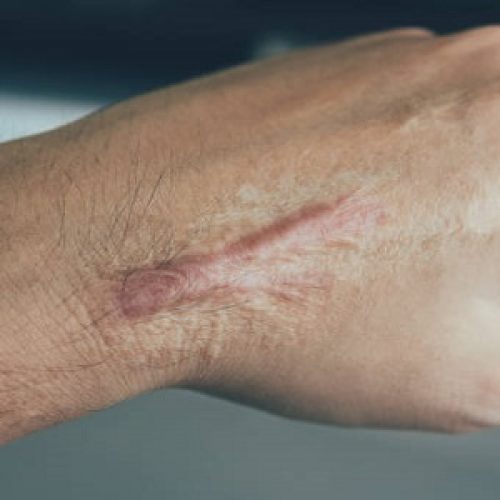
What Causes of Eczema
The exact cause of eczema is not fully understood, but it is believed to result from a combination of genetic and environmental factors. Key causes and triggers include:
- Skin Barrier Dysfunction:
- A weakened skin barrier allows moisture to escape and irritants to enter, leading to dryness and inflammation.
- Immune System Overreaction:
- The immune system may overreact to irritants, allergens, or microbes, causing inflammation and itching.
- Environmental Triggers:
- Common triggers include pollen, pet dander, mold, dust mites, and certain fabrics.
- Stress:
- Emotional stress can exacerbate eczema symptoms.
- Climate:
- Cold, dry weather can dry out the skin, while hot, humid weather can increase sweating and irritation.
- Irritants:
- Harsh soaps, detergents, fragrances, and certain skincare products can irritate the skin.
- Food Allergies: In some cases, food allergens such as eggs, milk, peanuts, soy, or wheat may trigger eczema, especially in children
Home Remedies and Lifestyle Tips
In addition to medical treatments, certain home remedies and lifestyle changes can help manage eczema symptoms:
- Use Gentle Cleansers: Avoid harsh soaps and opt for mild, fragrance-free cleansers.
- Take Short, Lukewarm Baths: Hot water can dry out the skin, so keep baths short and use lukewarm water.
- Pat Skin Dry: Gently pat the skin dry with a towel instead of rubbing.
- Wear Soft Fabrics: Choose loose-fitting clothing made of cotton or other soft fabrics.
- Humidify Your Home: Use a humidifier to prevent dry indoor air from irritating the skin.
- Avoid Scratching: Keep nails short and wear gloves at night if necessary to prevent damage from scratching.
Book your experience
Our expert team is ready to help you achieve radiant, healthy skin with treatments tailored just for you.
Enhance your beauty
Reveal your natural glow with expert beauty treatments designed to enhance your confidence.

Book an appointment

Get your schedule

Meet with our expert





